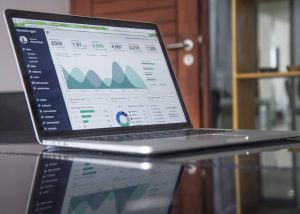As businesses become more globalized, they face a variety of risks, including currency fluctuations. Exchange rates can have a significant impact on a company’s bottom line, as they can affect the cost of goods, profits, and even the ability to compete in foreign markets. To mitigate these risks, companies can use foreign exchange (forex) to manage their currency exposure.
Forex is the market where currencies are bought and sold. It is a decentralized market, which means that there is no central exchange that governs it. Instead, forex trading takes place over-the-counter (OTC), meaning that traders buy and sell currencies directly with each other through electronic trading platforms.
One way that companies can use forex to mitigate exchange rate risks is through hedging. Hedging involves taking a position in the forex market that offsets the potential losses from currency fluctuations. For example, if a company has a contract to receive payment in a foreign currency in the future, it can hedge its position by selling that currency in the forex market at the current exchange rate. If the exchange rate falls in the future, the company will have locked in a profit on the forex trade, which will offset the loss on the contract.
Another way that companies can use forex to mitigate exchange rate risks is through currency swaps. A currency swap is an agreement between two parties to exchange currencies at a predetermined exchange rate on a specific date in the future. For example, if a company has a contract to receive payment in a foreign currency in six months, but it is concerned that the exchange rate may fall, it can enter into a currency swap with a bank or other financial institution. The company would agree to exchange its currency for the foreign currency at the current exchange rate, and then exchange the foreign currency back into its own currency in six months, regardless of the exchange rate at that time.
Companies can also use forex to manage their cash flow. If a company has operations in multiple countries, it may need to convert its cash into different currencies to pay bills, employees, or suppliers. By using forex, the company can ensure that it is getting the best exchange rate possible, which can save money in the long run.
Finally, companies can use forex to take advantage of opportunities in foreign markets. If a company sees an opportunity to expand into a new market, but is concerned about the exchange rate risk, it can use forex to manage that risk. For example, if a company is based in the United States and wants to expand into Europe, it can use forex to convert its dollars into euros. This will give the company the currency it needs to operate in the European market, while also mitigating the risk of exchange rate fluctuations.
In conclusion, forex can be a powerful tool for companies looking to mitigate the risks of exchange rate fluctuations. Whether through hedging, currency swaps, cash flow management, or taking advantage of opportunities in foreign markets, forex can help companies manage their currency exposure and protect their bottom line. As the world becomes increasingly globalized, forex is likely to become an even more important tool for businesses looking to compete in the global marketplace.





